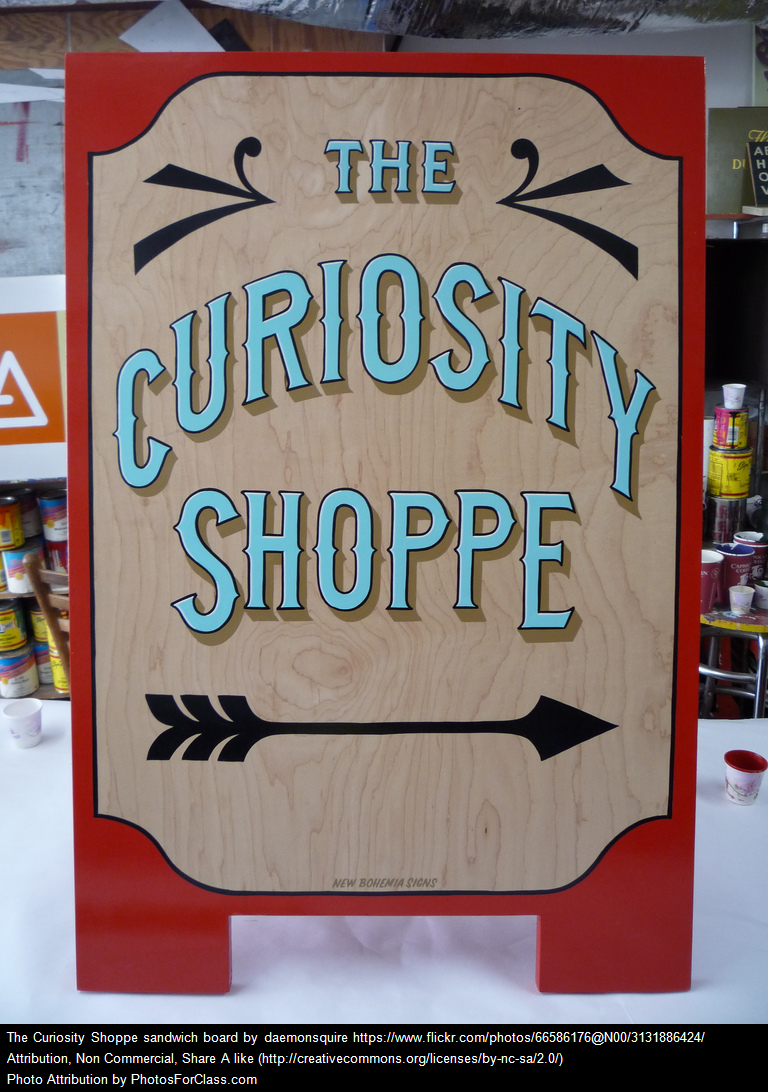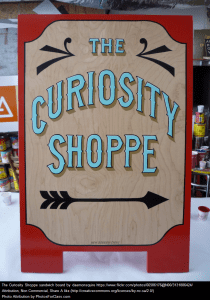How do you foster true curiosity in your students? Tell us below or by tweeting @learnquebec.
In a recent professional development session, our team of online teachers were learning about and discussing inquiry-based learning. One of the characteristics of an inquiry-based activity is that it begins with the curiosity of the learner. As a group, we spent some time that day discussing this characteristic: how to effectively engage the interest of our students and the challenges of balancing student curiosity with the realities of covering the curriculum.
Researchers from the University of California recently conducted experiments to discover what curiosity does to our brain activity. They found that “people are better at learning information that they are curious about” and “memory for incidental material presented during curious states was also enhanced”.
For me, this does not come as a huge surprise. I have seen firsthand that piquing students’ interest about a subject before teaching them something new will make them more ready to learn, will allow them to learn more deeply, and will help to engage their prior knowledge. However, it is not always easy to do this. Not all students are naturally curious. Some students get very anxious when there is a high level of uncertainty. As well, we are given a fairly rigorous curriculum to follow and it can sometimes be difficult to find the time to build students’ curiosity about particular material.
Since the PD session, I have done some reflecting on my own teaching practice to see where I’m encouraging student curiosity and what I can do to further expand on it. Here are three things I have realized through my reflections:
In order for students to ask questions, teachers need to create an environment where they feel safe to do so.
In Fostering Curiosity in Your Students, Marilyn P. Arnone suggests: “Create an atmosphere where students feel comfortable about raising questions and where they can test their own hypotheses through discussion and brainstorming. (Not only does this foster curiosity, but it also helps to build confidence.) “
At the beginning of the year, I find that many students are hesitant to ask questions. They are concerned about how their peers will react and they are worried that I will get upset that they are asking questions that could derail the discussion. My classes are online, so fortunately my students have the ability to send me private messages (which are only visible to me and that student). Through this feature, I am able to address student concerns in a private manner or talk about them to the class without identifying who raised the question. As time goes on and we have established a culture of questioning, I find that students are more confident to ask questions publicly. Sometimes we are able to investigate the question further as a class and sometimes we set that aside for offline interest.
Essential questions get students thinking about how what they already know fits into the main ideas for a unit of study.
Last year, I started using essential questions at the beginning of a unit to pique students’ curiosity right away. Essential questions “provide the fundamental organizing principles that bound an inquiry and guide the development of meaningful, authentic tasks”. Such questions help to identify common misconceptions and allow students to engage their prior knowledge.
For example, one essential question that I presented to students when I was starting a Physics unit on motion involving constant acceleration was this: “What automobile controls can cause a change in acceleration?” Most students could already tell me that the gas pedal could cause a car to accelerate; pressing it would cause the car to speed up. Some would also identify that the brakes would cause a deceleration; engaging them would cause the car to slow down. By asking this question, I was able to get students curious about what they didn’t already know about acceleration. As we worked through the unit, students would add the steering wheel to the list of controls that would also cause a change in acceleration (since this caused the car to change direction).
Sometimes, instead of providing students with an essential question at the beginning of a unit, I will give them time to brainstorm their own instead. My Chemistry students, when starting a unit on Reaction Rates, came up with this question: “How does the size of a loaf of bread affect the time that it takes to rise?” Some of them had personal experience with baking and knew that a larger loaf needed more time to rise, but they were eager to learn the “why” behind it.
Allow students to investigate new relationships before learning about them from time-to-time.
As Ken Elliott wrote in last month’s blog post, many traditional science classes involve executing well-defined lab investigations to support material that was previously taught in class. While it can be argued that these experiments were designed to give students a deeper understanding of the content, it certainly takes some of the inquiry part out of the equation. Students are not curious about the relationship between an unbalanced force, mass, and acceleration if they have already been taught Newton’s Second Law (F=ma). This year, I have made a conscious decision to flip my activities around so that students are doing labs earlier on in the learning cycle, with an emphasis on discovery.
My parting challenge to you:
Have I piqued your curiosity about curiosity? Read one of the articles below to find out more about how it enhances student learning and add a comment to share something you have learned!
Why Curiosity Enhances Learning
http://www.edutopia.org/blog/why-curiosity-enhances-learning-marianne-stenger
How Children Succeed: Grit, Curiosity, and the Hidden Power of Character
http://www.edutopia.org/blog/children-succeed-sel-elena-aguilar
Just Ask: Harnessing the Power of Student Curiosity
http://www.edutopia.org/blog/just-ask-power-student-curiosity-nicholas-provenzano
Fostering Curiosity in Your Students
http://www.educationoasis.com/resources/Articles/fosteringcuriosity.htm
Curiosity is critical to academic performance
http://www.sciencedaily.com/releases/2011/10/111027150211.htm
How curiosity changes the brain to enhance learning
http://www.eurekalert.org/pub_releases/2014-10/cp-hcc092514.php
Curiosity: It Helps Us Learn, But Why?
http://www.npr.org/blogs/ed/2014/10/24/357811146/curiosity-it-may-have-killed-the-cat-but-it-helps-us-learn
Curiosity Prepares the Brain for Better Learning
http://www.scientificamerican.com/article/curiosity-prepares-the-brain-for-better-learning/







“How does the size of a loaf of bread affect the time that it takes to rise?” Some of them had personal experience with baking and knew that a larger loaf needed more time to rise, but they were eager to learn the “why” behind it.”…
Kitchen chemistry is a great springboard for inquiry-based learning because it’s something everybody can relate to. There are many basic concepts that surface; for those who want to probe further, the science involved can be quite complex and not all the answers are known.
Here’s a link to a simple kitchen chemistry experiment that your online students can easily do at home. It’s based on some ideas from molecular gastronomist and physical chemist Herve This.
http://www.emsb.qc.ca/laurenhill/science/eggexpt.jpg